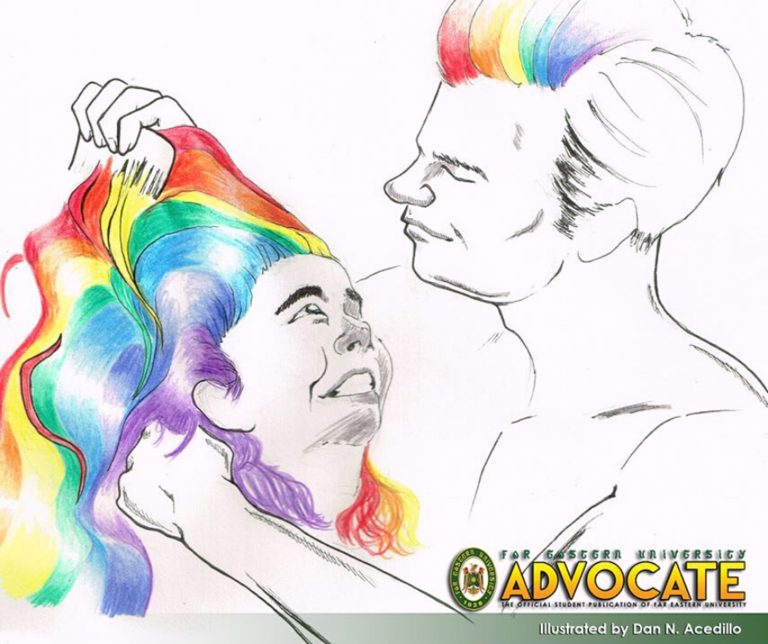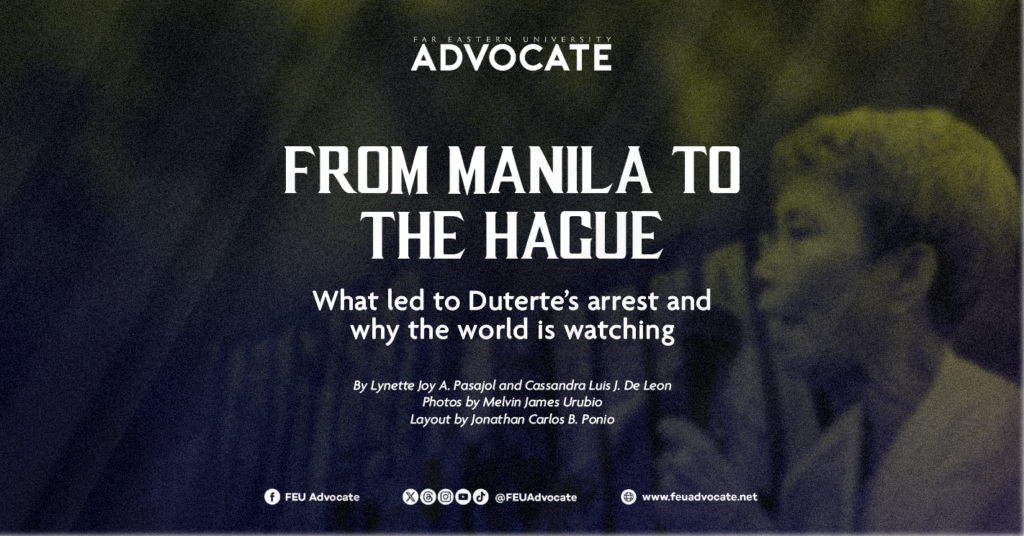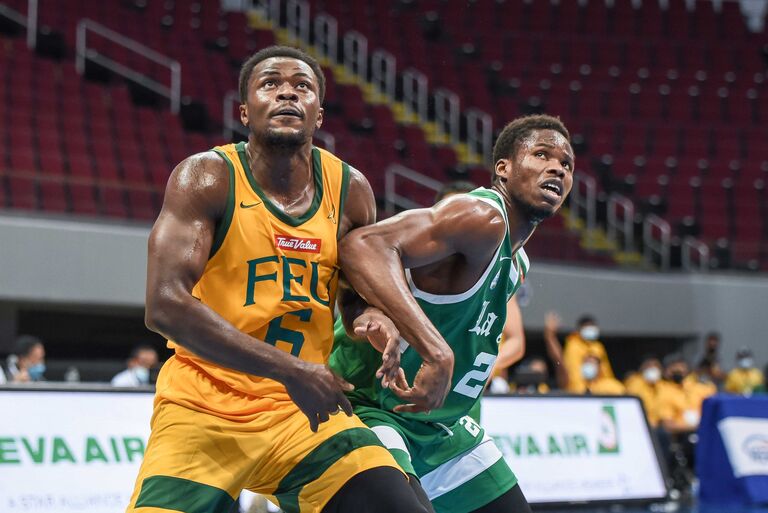
As I Comb Her Hair
- June 17, 2018 16:31
FEU Advocate
March 28, 2025 13:49

By Lynette Joy A. Pasajol and Cassandra Luis J. De Leon
Following years of calls for accountability, former Philippine President Rodrigo Roa Duterte’s arrest marks the culmination of years of investigations that led to his transfer to the custody of the International Criminal Court (ICC) in The Hague, the Netherlands to face charges of crimes against humanity last March 12.
Former President Duterte’s case of alleged crimes committed during his administration’s controversial anti-drug campaign now moves forward in the ICC’s legal process, where he faces formal charges related to the extrajudicial killings (EJK) linked to his war on drugs.
Duterte’s arrest has triggered a wide range of reactions. In the Philippines, his supporters argue that the ICC’s intervention undermines national sovereignty, while human rights advocates view it as a long-overdue step toward justice.
Prior to this, the Philippine National Police (PNP) had stated that it would not enforce any ICC warrant against Duterte, asserting that the court lacked jurisdiction following the country’s withdrawal from the Rome Statute.
In a related development, Duterte and former PNP Chief Senator Ronald ‘Bato’ dela Rosa filed a petition seeking a Temporary Restraining Order (TRO) to prevent Philippine government agencies from cooperating with the ICC’s investigation.
However, the Supreme Court of the Philippines declined to issue the TRO, ruling that the petitioners failed to establish a ‘clear and unmistakable right’ to justify such an order.
The Court has directed the respondents to comment on the petition within 10 days, leaving the possibility of a TRO issuance open but not immediate.
Duterte’s arrest raises several legal and political questions: What does this mean for the Philippines? How does the ICC function, and why does it have the authority to prosecute him despite the Philippines’ withdrawal from the court? What happens next, and how might the trial proceed?
The ICC’s jurisdiction and legal framework
Established under the Rome Statute in 2002, the ICC is an independent international tribunal based in The Hague, Netherlands.
Its primary mandate is to prosecute individuals for four core international crimes: genocide, crimes against humanity, war crimes, and aggression.
The ICC operates on the principle of complementarity, intervening only when national jurisdictions are unwilling or unable to prosecute such crimes.
According to the ICC, the Philippines became a State Party to the Rome Statute on November 1, 2011, granting the court jurisdiction over crimes committed within its territory or by its nationals from that date onward.
In March 2018, the Philippines formally notified the ICC of its withdrawal, which took effect on March 17, 2019.
However, the ICC retains jurisdiction over crimes committed during the period when the Philippines was a member, specifically from November 1, 2011 to March 16, 2019.
Despite the country’s withdrawal, the ICC maintains legal authority to investigate and prosecute alleged crimes committed within that period, making Duterte’s arrest lawful under international law.

A look at the data on Duterte’s EJK
While running for presidency, Duterte’s main campaign revolved around his speeches of death threats against criminals, particularly drug users, and a promise to eradicate illegal drugs within the first six months of his term, capturing the 16,601,997 Filipinos, who elected him as the country’s president for the 2016 to 2022 term.
In the span of his six-year term, individuals killed in police anti-drug operations reached 6,252, while around 27,000 to 30,000 individuals lost their lives in vigilante killings. Out of 50 cases of enforced disappearances documented by the Families of Victims of Involuntary Disappearance under Duterte’s administration, 24 of those were found to be drug-related cases.
Additionally, the death count of activists, defenders, organizers, journalists, and media workers reached a total of 616, with the country placing 138th out of 180 nations in the World Press Freedom Index for 2021, and Reporters Without Borders, an international organization focused on defending freedom of the press, dubbed Duterte as one of the ‘press freedom predators.’
At the end of his term, political prisoners arrested under Duterte’s term of office reached a total of 592, and it was also under his term when the ‘Bloody Sunday Massacre’ happened, resulting in the deaths of nine individuals and the arrest of seven others connected to activist groups.
According to the ICC, approximately 30,000 victims were caused by the killings of police and unidentified perpetrators over the past six years during Duterte’s tenure.
The youngest recorded case of the government’s campaign against illegal drugs is Myca Ulpina, a three-year-old girl who was killed alongside her father during a drug operation. She is among the 122 other children who lost their lives during the administration’s war on drugs.
Up to this date, eight police officers have been convicted for the victims’ deaths, including the policemen who were found guilty for the murder of the three high-profile cases of teenagers Kian Delos Santos, Carl Arnaiz, and Reynaldo De Guzman.

Timeline of Duterte’s case: From drug war to arrest
Starting from 2016, with the beginning of his presidency and lasting until its end last 2022, Duterte’s term, which revolved around the controversial war on drugs, led to thousands of extrajudicial killings.
After the long timeline, it has finally led to his ICC arrest this 2025. The former president’s arrest is the manifestation of the awaited moment for the families of victims, who have endured years of seeking justice.
Duterte’s war on drugs and the initial ICC investigation
Formal ICC investigation, arrest warrant, and Duterte’s detention

ICC legal process and proceedings
The ICC’s legal proceedings involve multiple stages before reaching a final verdict. The process begins with a preliminary examination, during which the prosecution evaluates whether there is a reasonable basis to proceed with an investigation.
Once the investigation is authorized, as in Duterte’s case, prosecutors gather evidence and interview witnesses before requesting an arrest warrant or a summons.
After arrest, the suspect makes an initial appearance, during which the charges are read. This is followed by a confirmation of charges hearing, where the Pre-Trial Chamber determines whether the prosecution has sufficient evidence to proceed to trial.
If the charges are confirmed, the case advances to trial, where both the prosecution and the defense present their arguments.
Based on the law of the ICC, the now 79-year-old Duterte could face up to 30 years of imprisonment if found guilty of crimes against humanity of murder, but will still be given a chance to appeal after the verdict’s release before sentencing is finalized.
If convicted, Duterte would serve his sentence in a state that has agreements with the ICC to house convicted war criminals.
Countries that have agreements with the ICC for enforcing sentences include Austria, Belgium, Denmark, Finland, Mali, Norway, Serbia, Sweden, and the United Kingdom.
However, the selection of the country where a convicted person serves their sentence depends on various factors, including prison conditions and proximity to the convict’s family.
While awaiting trial or if no agreement has been reached with a country for sentence enforcement, a convicted individual is temporarily detained at the Scheveningen prison facility, a coastal detention unit near The Hague.
What’s next in the legal representation and process?
As the former president prepares his defense, attention has turned to the legal team that will represent him before the ICC.
The ICC has confirmed that British-Israeli lawyer Nicholas Kaufman was appointed as Duterte’s lead counsel in the proceedings, which was officially confirmed in this role by the ICC on March 18.
Initially, the former President’s legal team included former Executive Secretary Salvador Medialdea and former presidential spokesperson Harry Roque.
In a handwritten power of attorney dated March 12, Duterte formally designated Medialdea to assist him during his initial appearance before the Pre-Trial Chamber.
The ICC’s Registrar acknowledged the request and facilitated Medialdea’s presence at the initial appearance.
However, Vice President Sara Duterte announced last March 19 that both Medialdea and Roque would no longer be part of her father’s legal team for the upcoming trial.
Amid these developments, Roque expressed his intention to seek asylum in the Netherlands. Citing his commitment to defending Duterte before the ICC, the former presidential spokesperson stated that he cannot return to the Philippines due to his legal obligations.
Roque plans to file his asylum application promptly, emphasizing his legal entry into the Netherlands with a Schengen visa.
ICC Pre-Trial proceedings and defense claims
As Duterte appeared before the ICC’s Pre-Trial Chamber I via video link, the Chamber led by Presiding Judge Iulia Antoanella Motoc, alongside Judges Reine Alapini-Gansou and María del Socorro Flores Liera, scheduled the hearing for the confirmation of charges on September 23, 2025.
This timeline provides adequate preparation time for both parties, ensuring Duterte’s right to a trial within a reasonable period. The Chamber may postpone the date depending on the proceedings’ progress.
Further, Duterte’s defense team, led by Medialdea, has challenged the proceedings with the claim that his arrest and transfer to The Hague were unlawful.
Medialdea described the move as “pure and simple kidnapping,” arguing that the ICC’s actions were politically motivated and violated proper legal procedures.
Leading up to the confirmation of charges hearing on September 23, both the prosecution and defense will engage in pre-trial activities, including the disclosure of evidence, submission of legal arguments, and identification of witnesses.
The ICC will also address any procedural challenges raised by the defense, including objections to the court’s jurisdiction or the admissibility of evidence.
For years, the families of EJK victims have pursued accountability while grieving for the lives taken by the past administration. The former president’s arrest may be considered a ‘crucial milestone,’ but his conviction would serve as true acknowledgment that their voices have finally been heard after their long-fought battle for justice.
(Photo by Melvin James Urubio/FEU Advocate; Layout by Jonathan Carlos B. Ponio/FEU Advocate)









